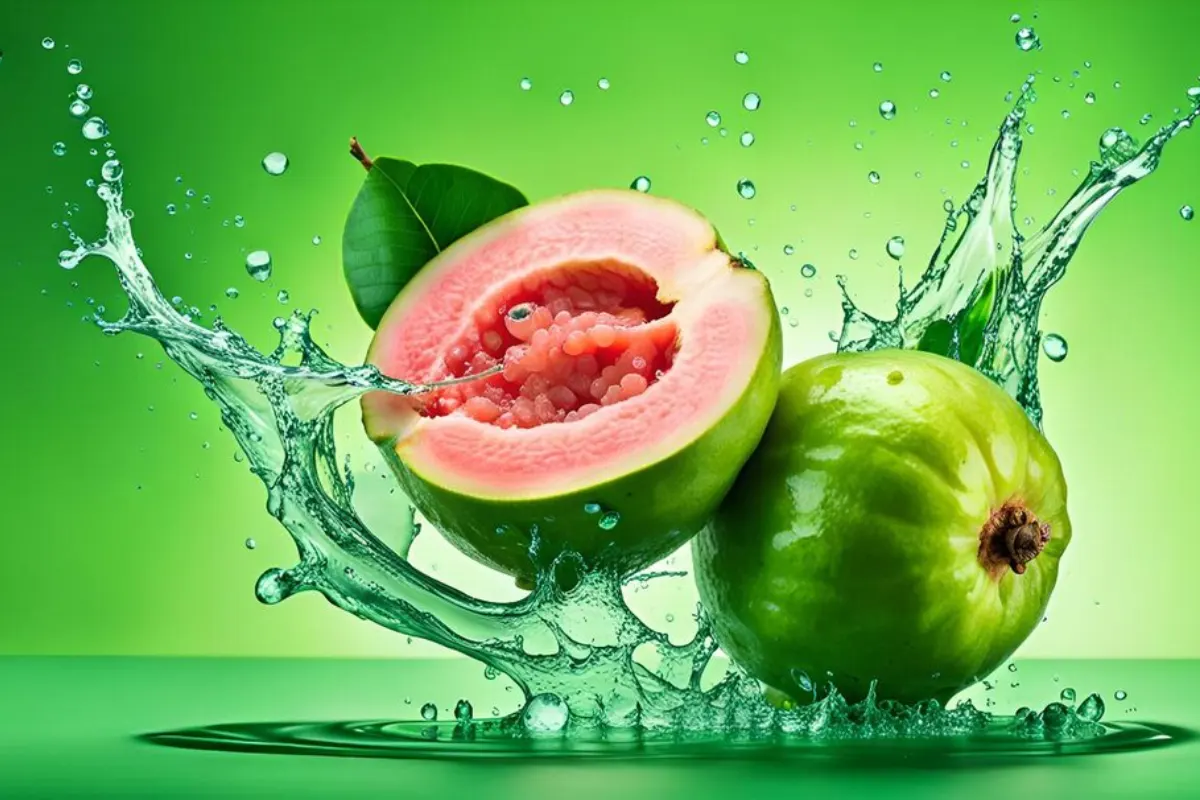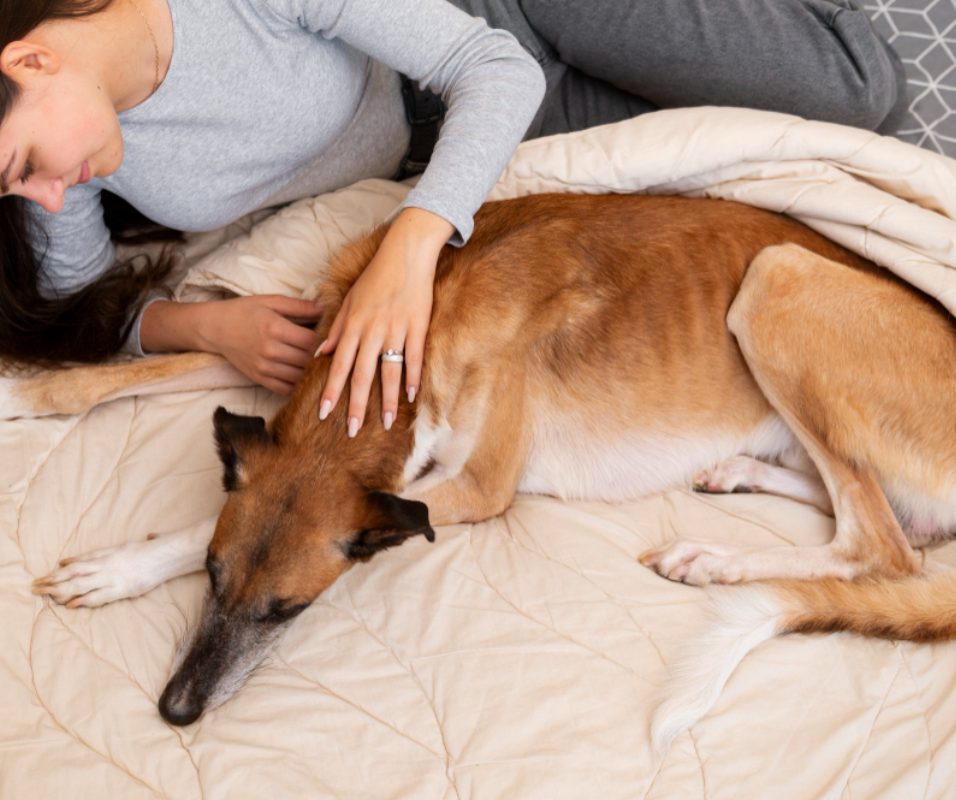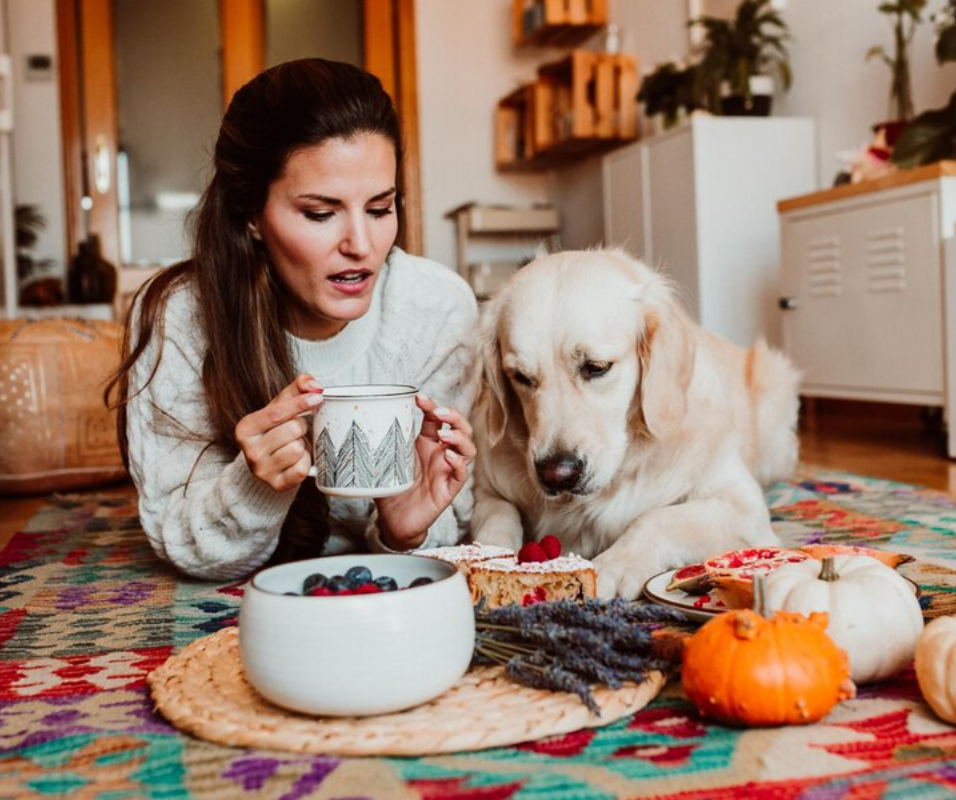So, can your pup dive into some guava goodness, or is that a big no-no? Let’s see if this fruity delight is a tasty treat or a total flop!
Guava is a tropical fruit rich in nutrients and is loved by most humans. But can it be shared with furry friends? As pet owners would quickly hand over that piece of Guava to their dog, it’s good to know whether this fruit is safe and beneficial for them first.
This guide will cover nutritional value, precautions, and tips for feeding your dog Guava.
Can Dogs Eat Guava?
Yes, dogs may eat the Guava in moderation. This exotic fruit could be advantageous for many health-related purposes because of the richness of nutrients in its composition. However, like with any treatment, moderation is recommended because overconsumption may cause a variety of potential digestive issues.
While Guava is a fruit full of vitamins, fibres, and antioxidants, it becomes practical to consider some major points so your dog can experience it safely.
Why Guava might be good for dogs
- High content of Vitamin C and A. Vitamin C and A are suitable for the immune system.
- An antioxidant helps protect the body against oxidative stress.
- It contains fibre, which aids in digestion.
Nutritional Breakdown of Guava
1. Guava Vitamins: Vitamin C, A, K
This fruit boasts some of the most critical vitamins for a dog’s life. Here’s how these will work in favour of your dogs.
- Vitamin C
Helps boost the immune system and prevent dog sickness.
- Vitamin A
A key nutrient in guava, is a boon for your dog’s eyes, ensuring they stay healthy and their coats maintain a lustrous shine, enhancing their overall appearance and well-being.
- Vitamin K
Another essential nutrient in guava, is a champion for bone health, ensuring your dog’s bones are strong and healthy, promoting proper blood clotting and overall physical strength and agility.
2. Fiber and Digestive Health
Guavas contain a lot of dietary fibre, which could be better for digestion. Fibre, by itself, helps ensure healthy bowel movements and prevent irregularities.
However, too much fibre can lead to loose stools, making it very important to regulate portions.
3. Antioxidants: Natural Defense
At the same time, guava’s antioxidants can eradicate free radicals, which may cause tissue damage repeatedly. This could reduce the chances of Long-term illness in dogs and support a healthy condition for a long time. Guava’s antioxidants primarily protect the body from oxidative stress, which causes and accelerates ageing and other health problems.
Is Guava Safe for All Dogs? Potential Risks
In short, guava is innocuous to most dogs; however, there are qualifications. Some dogs will react adversely, not necessarily to the guava itself, but perhaps to some pre-existing condition or allergy.
1. Which Dogs Should Avoid Guava?
Animals with diabetes and Overweight conditions should not be fed guava, as the fruit contains sugar, which can be harmful to animals with these conditions. While fruits are natural and healthy, the sugar in them can raise blood glucose levels, posing a risk to dogs with diabetes and obesity. It’s essential to be mindful of this and avoid feeding dogs with these conditions guava.
2. Seeds and Skin: The Hidden Danger?
Tiny fruit seeds can easily cause a dog to choke, especially in smaller breeds. Consuming seeds might also block a dog’s stomach. The skin of guava should also be removed and peeled, as sometimes it becomes difficult for dogs to digest. Seeds and skin should be removed permanently before feeding your dog guava.
3. Allergy in Dogs
Even though it’s a rare disease, some dogs might be allergic to guava. Introduce new foods gradually and watch for any signs of allergies, such as itching, swelling, or trouble breathing. If your dog reacts to the guava in any way, stop feeding it immediately and see your veterinarian.
How to Safely Feed Guava to Your Dog
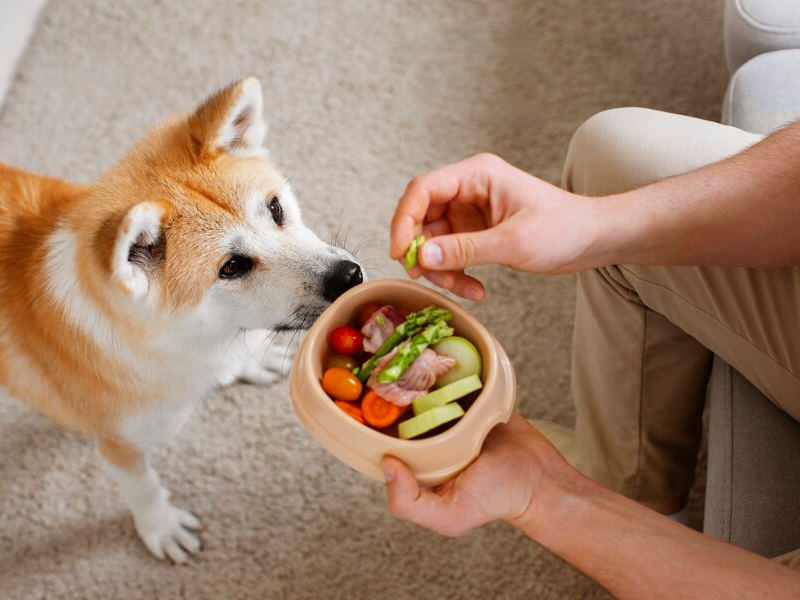
1. Recommended Amounts for Serving
Feeding guava to your pet must be in moderation. A small slice is enough for small breeds while a couple of slices will do for larger breeds. Always monitor the responses of your dog, particularly the first time they take guava.
2. Preparation Methods
- Preparation of Guava Safe
- Wash the fruit clean.
- Peel off the skin to prevent digestive upsets.
- Extract all the seeds to prevent possible choking or blockage in the digestive system.
- Cut into small, bite-sized pieces.
3. Substitutes for Raw Guava
Guava Juice, Puree, etc.
Raw guava is the best, but sometimes people want to know if guava juice or puree is safe. The best advice would be to steer clear of processed guava products like juice or puree because most of these add sugar or other chemicals to guava, which is toxic to dogs.
Benefits of Feeding Guava to Dogs
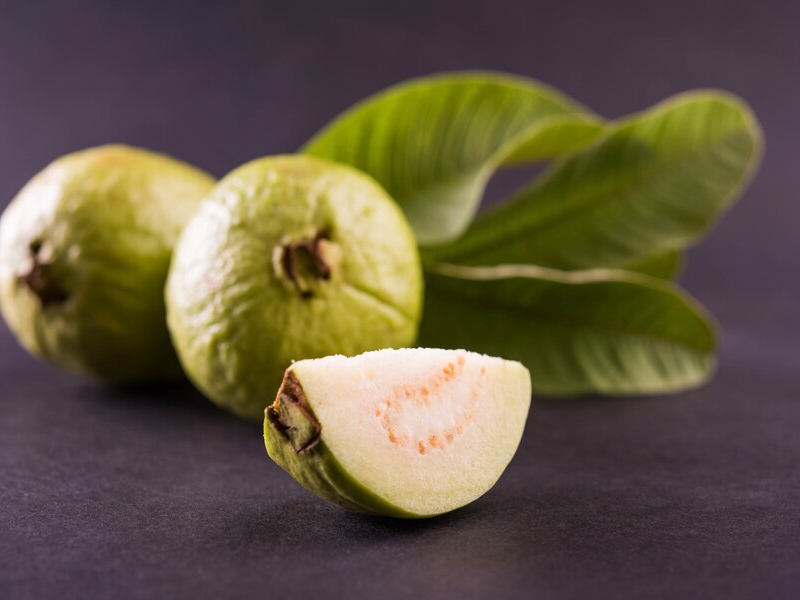
1. Boost Immune System
Guava is high in vitamin C. To us, we can assume that dogs can produce vitamin C, which is necessary to build up their immune system and defend against diseases and infections.
2. Improves Digestive Health
Guava fibre may act to increase digestive health because it ensures regulated movements of the bowel and avoids constipation. However, this might lead to having loose stools or a diarrheal condition in cases of excessive consumption. That is why feeding should be moderate.
3. Promotes healthy skin and coats
Vitamin A is good for maintaining the overall health of your dog’s skin and its shining coat. Its great use is for dogs that have dry and sensitive skin, as it retains moisture and propels cell regeneration.
Other Fruits Safe for Dogs
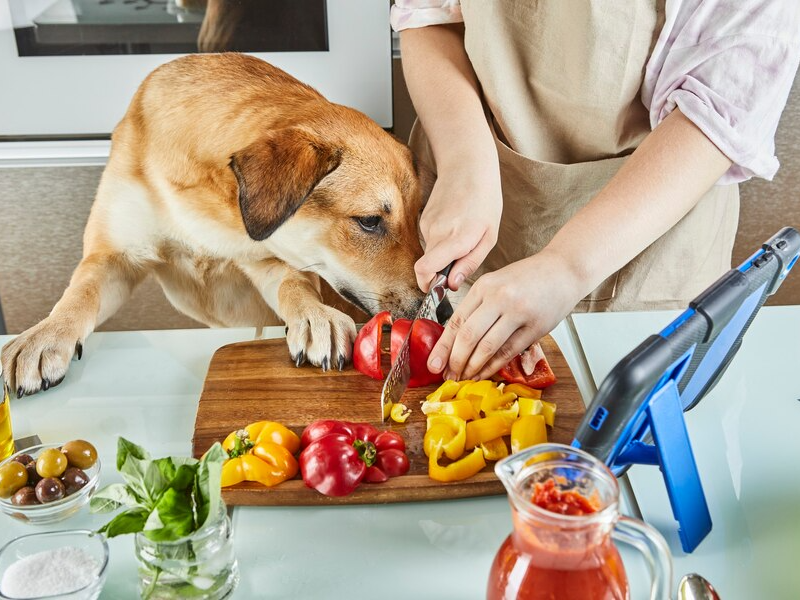
Other Vegetables
If guavas are out of season or your dog does not like them, other Vegetables can be used instead. These include eggplant, Cilantro, and Carrots. Like these fruits, all of them contain essential vitamins and fibre; thus, they are fine for dogs.
Fruits to Avoid
Not all fruits are safe for the dogs. Fruits such as grapes, raisins, and cherries are toxic and cause severe health issues. These fruits should always be checked to be secure before giving them to your dog.
Conclusion
Guava can be a healthy and nutritious dog treat when fed in moderation and prepared correctly. With its rich vitamin content, antioxidants, and fibre, guava can boost your dog’s immune system, support digestive health, and promote a shiny coat. However, always be mindful of potential risks, like choking hazards from seeds and skin and allergic reactions.
As with any new addition to your dog’s diet, it’s essential to consult your veterinarian before making guava a regular treat. Your dog’s health and safety come first; a vet’s guidance is crucial in safely introducing guava into their meals.



